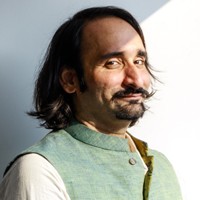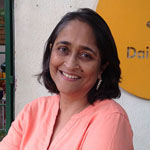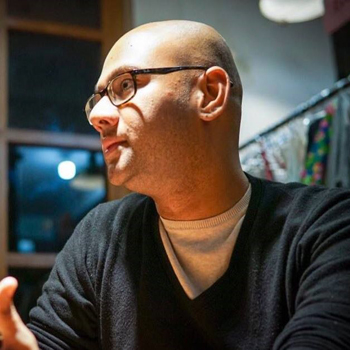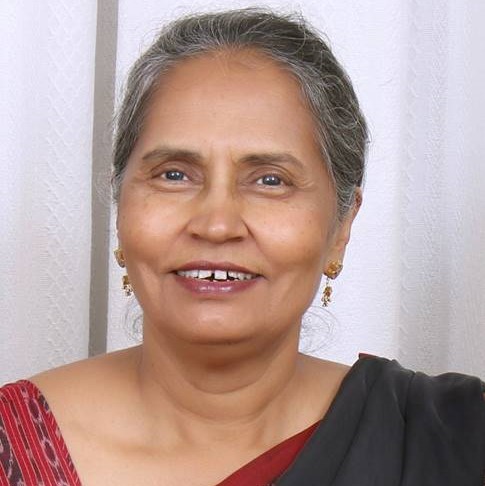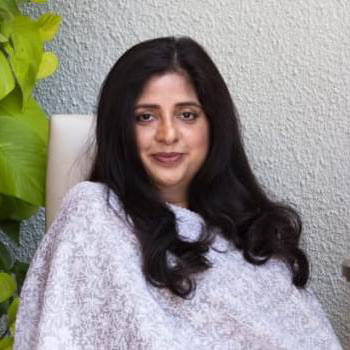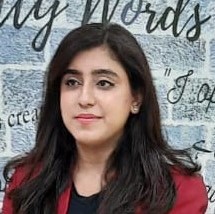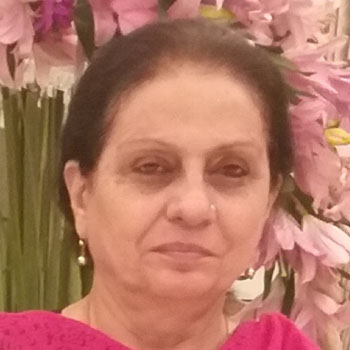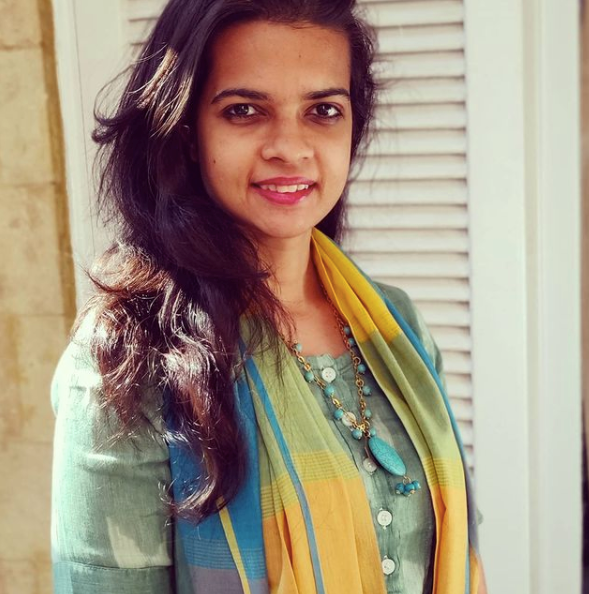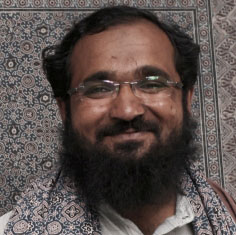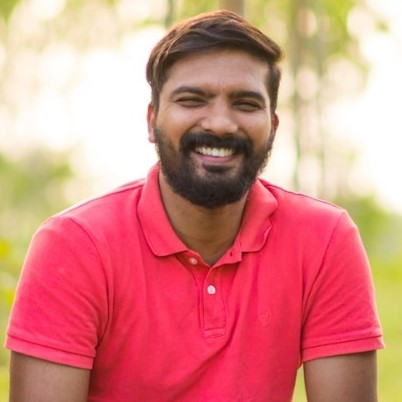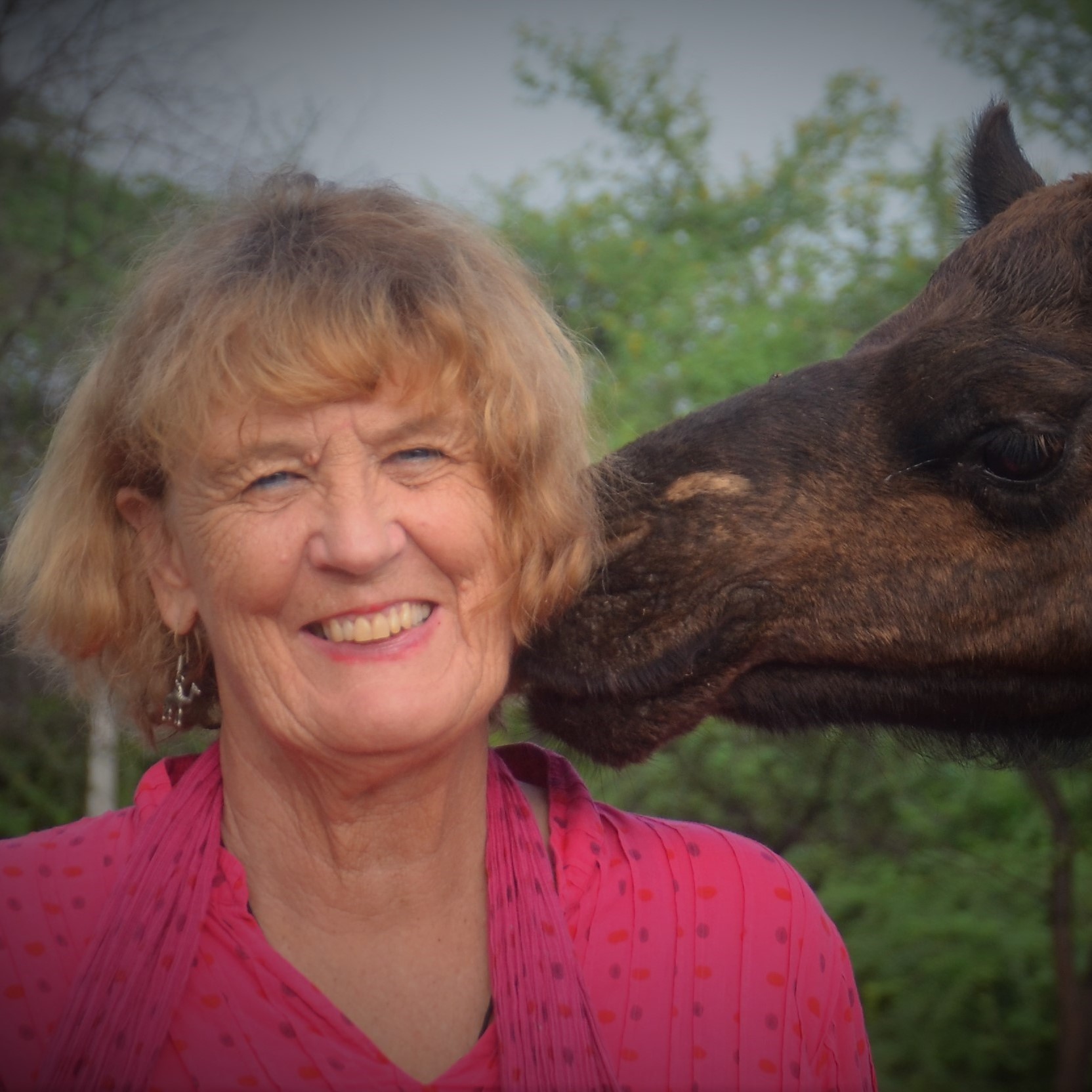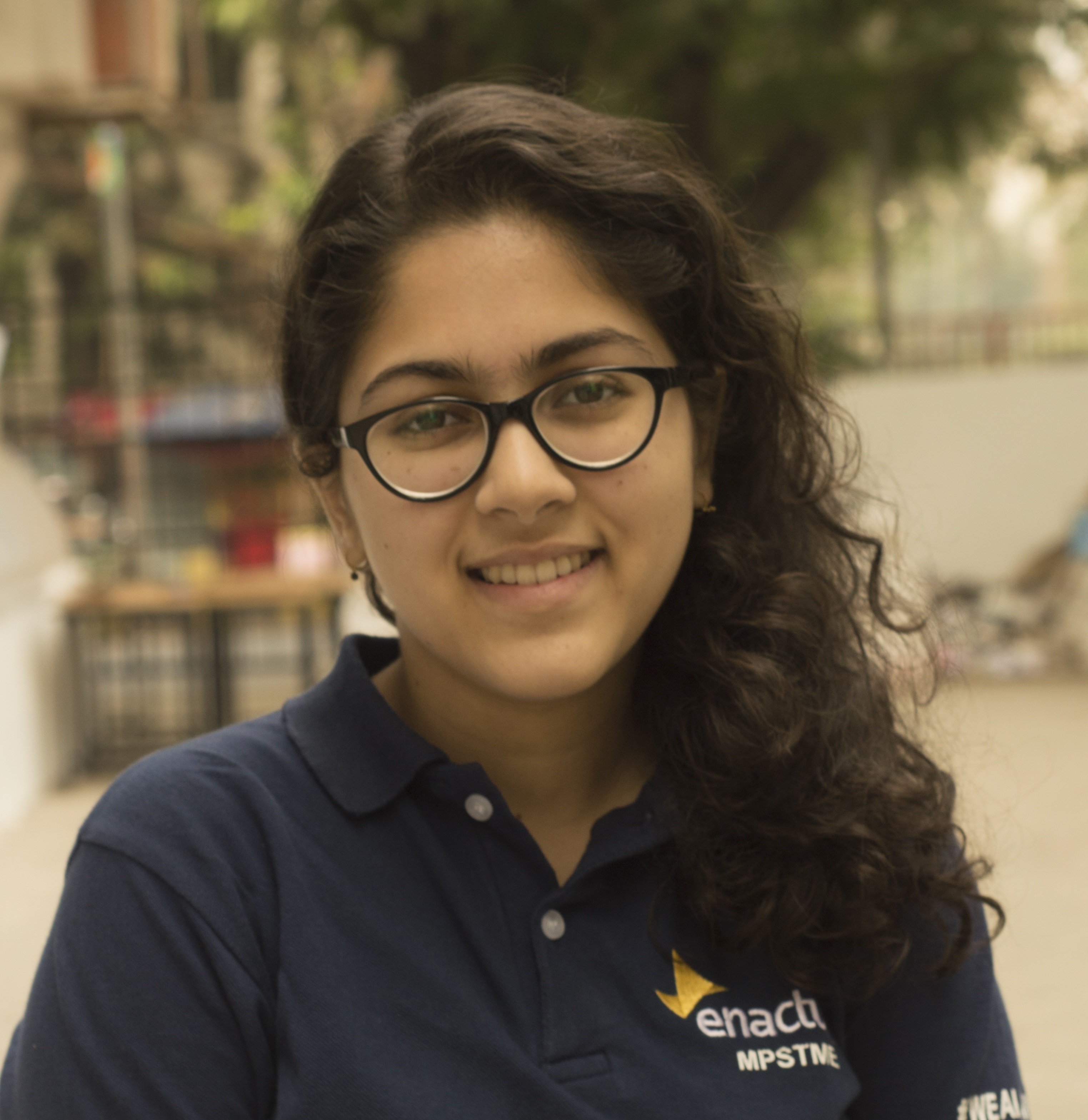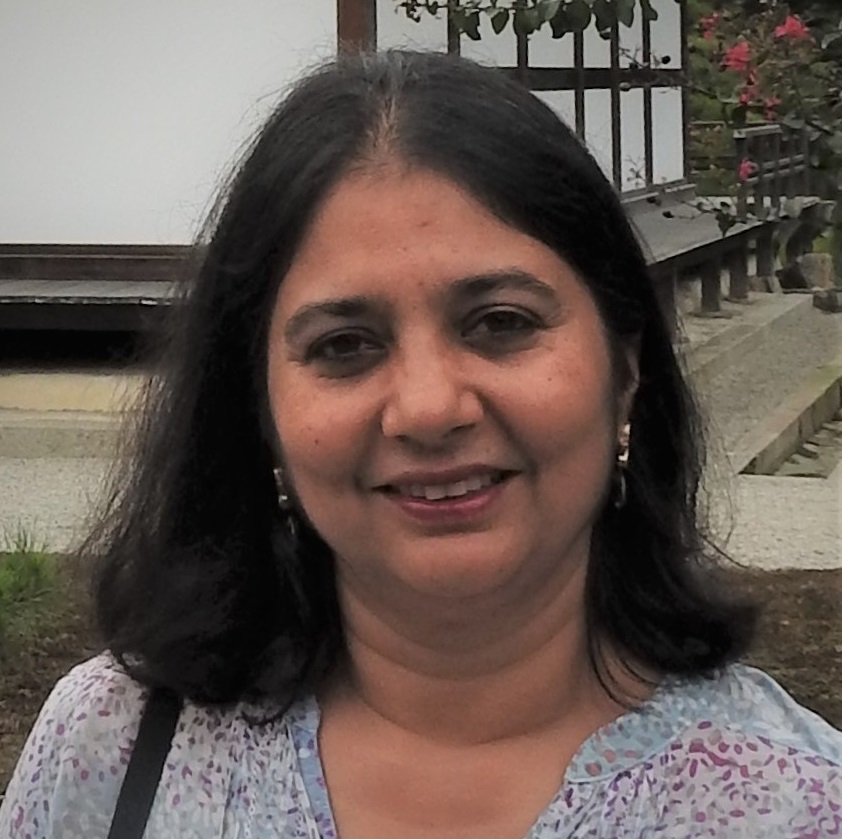JOURNAL ARCHIVE
Dr. Krishen K Kak has a master's degree (1987) and a doctorate (1990) in cultural anthropology. He joined the IAS in 1968, retired voluntarily in 1999, and now - through the NGO GAYATRI - reads, writes, edits, and teaches in the broad field of crafts, education, ethics and culture.
Anjali Kalia is a design graduate from NIFT (National Institute of Fashion Technology), New Delhi. Her graduate collection in 1995 was awarded the CMAI (Clothing Manufacturers Association of India) Award for the Most Creative Collection; she is also a recipient of the Smirnoff Fashion Awards, 1994. Subsequently Anjali worked for Walter Johnson India Pvt. Ltd, followed by a stint of 5 yrs with Rohit Bal. She was also the founder designer for Maya, a label catering to the contemporary Indian women - her fashion shows for this label received critical acclaim. Currently Anjali is working for her own design label ‘Divine Design’ Besides being a consultant to various NGO’s she has conducted a series of Design Development Workshops for traditional artisans to make their products suitable for contemporary markets. Anjali is actively involved with the Tuesday Collective to give voice to the weavers. She is also a trustee of the Pranam Foundation.
Design Academician and Social Entrepreneur, with practice-based PhD degree from NIFT titled ‘Design Education of Chikankari Artisans: A Tool for Social Innovation'. Jaspal Kalra graduated in Fashion Design from NIIFT, Mohali followed by PGCHE and Master of Design (Fashion) from Nottingham Trent University. Alongside he has worked on project brief development and curriculum for Design and Craft based Institutes, developing new forms through zero waste cutting techniques. He has a total of 21 years’ work experience, in professional design spaces of a self-run brand, with ace designers, retail brands and international buyers, and knowledge sharing at various design Institutes. He has provided services as a consultant for staff development and course delivery, and conducted seminars and workshops on craft appreciation. His professional engagements range from teaching workshops at Ashoka University and courses at Somaiya Kala Vidya to serving as an expert panellist for ‘National Entrepreneurship Awards Scheme’, a Member of the Board of Study of Fashion departments of Universities and as a design consultant for projects like Usttad (by NIFT supported by Ministry of Minority Affairs). He has presented in various national and international conferences. He works closely with craft clusters and promotes co-design and design practice sharing with artisans through his brand Sangraha Karigar Atelier. He is a founding member of Kalhath Institute Lucknow’s team to create curriculum and projects, and the Institute’s Executive Director.
Dr. Ajit Kanitkar is Program Officer, Development Finance and Economic Security, Ford Foundation, New Delhi. He has a Ph. D from Pune University (Entrepreneurial response to Liberalization Policies: A case of Dairy Industry in India). He has worked with the Swiss Agency for Development and Cooperation (SDC), and as a Development Consultant in Pune and Delhi. Ajit has published three books on Women Entrepreneurs, Grassroots entrepreneurship and management of cooperatives in India. Ajit is interested in Ensuring access to financial services, promoting appropriate institutional and enterprise models that result in maximum returns to primary producers and change processes in large public systems.
Kavas Kapadia is an Architect –Planner. Dean of Studies and Professor, Dept.of Urban Planning, School of Planning and Architecture, New Delhi. He has worked in Nigeria, Iran and Singapore and been on juries, key committees of Council of Architecture, Indian Institute of town planners, AICTE, DDA, NCR board and such organizations as member and or chairperson. He has extensively presented papers at national and International forums. He is an active member of the Delhi Parsi Anjuman.
Poonam Bir Kasturi, an industrial designer by training, is founder faculty of the Srishti School of Art Design and Technology, Banglore. She founded Industree Crafts Pvt Ltd along with two other partners. She is also the founder-director of PlaynSpeak, a company that designs and manufactures new paradigm products. Poonam has a number of papers on design and craft issues to her credit. During her career she has designed and conducted numerous interactive workshops on issues of design, creativity and craftsmanship.
Ekta Khokhar Kaul a graduate of the National Institute of Design, Ahmedabad, is currently engaged pursuing her Masters in Textile Design at the School of Textile and Design, Heriot-Watt University, Scotland. She was awarded the Scottish International Scholarship, 2005/06 as well as Charles Wallace Wallace Trust India Scholarship, 2005/06. For her Masters project she is engaged in developing synergies between technology with textile traditions. Prior to embarking upon the Masters programme, Ekta had a successful stint at the industry, working with some of India’s most revered designers.
Mayank Mansingh Kaul is a New Delhi-based writer and curator with an interest in post-independence histories of textiles, design and fashion in India. A graduate in textile design from the National Institute of Design, Ahmedabad, Kaul has been involved in the past in areas of cultural and creative industries’ policy. Exhibitions that he has curated include The Idea of Fashion (Khoj International Artists’ Residency, New Delhi, 2011), Fracture: Indian Textiles, New Conversations (Devi Art Foundation, Gurgaon, 2015), Gold: The Art of Zari (Bikaner House, New Delhi, 2017), 25 Years of Abraham & Thakore (New Delhi, 2017), Crossroads: Textile Journeys with Ritu Kumar (India Habitat Centre, New Delhi, 2018), New Traditions: Influences & Inspirations in Indian Textiles (Jawahar Kala Kendra, Jaipur, 2018) and Meanings, Metaphor - Handspun and Handwoven in the 21st Century (Chirala, Coimbatore, Bangalore, 2018-19). He is the editor of Take on Art Design (2012), Cloth and India: Towards Recent Histories, 1947-2015 (Marg, 2016), Baluchari: Tradition and Beyond (2016) and Take on Art Fashion, which looks at a century of Indian fashion (2019). Kaul has represented the field of Indian design and textiles in prestigious forums internationally, and has received prominent mentions on lists such as The Most Influential Young Indians at the World Economic Forum Davos (2013 and 2014) and India's Most Influential Creatives in Harpers Bazaar India (2018). Photo Credit: Jasmeet Arora
Jasvinder Kaur studied textiles at Delhi’s Lady Irwin College. Many years later, it was a fascinating walk down the famous Chicken Street in Kabul, lined with displays of Central Asian textiles, which inspired her to pick up the threads again. Since then, over the course of 30 years, she has been continuously engaged with the subject. This has included consultancy assignments at the Musée d’art et d’histoire and Musée d'ethnographie, both in Geneva, Switzerland, and lecturing as visiting faculty at the National Institute of Fashion Technology, New Delhi. Her articles have featured in international and Indian publications, and she is a regular contributor to The Tribune, Chandigarh—the city she calls home. She is the author of Influences of the British Raj on Attire and Textiles of Punjab
A graduate in English Literature from Delhi University, Tulika Kedia is a passionate collector of indigenous art from the tribal areas across the many Indian states. She is the president of DPS Mihan and DPS Kamptee Nagpur. As a philanthropist, she has supported a large group of artists, collecting their work for more than a decade and has established a commercial gallery, the MUST ART GALLERY, which has a large following of Indian and International buyers. Pursuing her passion, Tulika helped Hervé Perdriolle (a graphic designer, photographer, art director, art critic and curator) published a path-breaking book, on Indian Indigenous art called Indian Contemporary Art: Contemporary, One Word, Several Worlds. She has individually penned down Contemporary Expressions-Art Of The Jogi Family which was launched at the Jaipur Literature festival a couple of years ago. She is the founder of The Kanha Museum of Life and Art at Singinawa Jungle Lodge, Madhya Pradesh
Khaliq, Aruj is an interdisciplinary educationist from Pakistan who has been associated with educational leadership, teaching and curriculum planning since the year 2013. In addition to chairing a department at a renowned private institute, Aruj founded ALIF (Academic Leaders' Innovation Forum) as her passion project to promote 21st Century skills in academia through bespoke solutions. She is a final year M.Phil scholar of Educational Leadership & Management at Beaconhouse National University and in her free time fancies indulging in reading, writing or travelling with her to-go tea mug!
Noor Khan is an educationist and retired as the Principal of Karamat Husain College, Lucknow. She is a member of the core team of Sanatkada and has worked closely with the organization since it was set up by Madhavi Kuckreja as a weaves and crafts outlet in Lucknow in 2006. Sanatkada's annual theme based festival under the banner Mahindra Sanatkada Lucknow Festival (since 2010) has become an important event on Lucknow's cultural calendar. The theme changes every year and focuses on Lucknow's rich heritage and cultural diversity. Some interesting themes in the past have been the celebration of Lucknow's crafts, food, pehnawa, communities, its feminists, qasbas, its French connection . Sanatkada has a wide outreach but its basic business remains the same - that, it is a weaves and crafts outlet and its commitment to craft practitioners has deepened with time. The theme of the 10th MSLF was a celebration of the beautiful craft practices of Lucknow - Husn-e-karigari-e-Awadh. So Gyan and Mohammad Ali are not random blockmakers and printers, they are master craftsmen who participate regularly in the MSLF and with whom Sanatkada shares a special relationship. They best represent the husn for which the karigari of Lucknow is widely appreciated.
Arushi has been involved in building sustainable crafts’-based enterprises for the last 12 years. She is an Economics graduate from Mumbai’s St Xavier’s College and a post-graduate from NIFT. She began her career with WomenWeave, an NGO working for the advancement of women handloom weavers in Madhya Pradesh. From 2012-mid 2015, she headed the Enterprise Support and Craftmark Programs at the All India Artisan and Craftworkers Welfare Association (AIACA). She and her team conducted many successful design and technical intervention with crafts from across the length and breadth of India. Significant amongst these was the crewel embroidery project with INTACH J&K, design development of the craft of “bandhani” funded by Ford Foundation and the successful revival of the Mubarkapuri weave of Uttar Pradesh. In the commercial space, Arushi has been part of the founding product teams for craftsvilla.com and Aditya Birla’s curocarte.in. She is also a self-taught natural dyer and her developments in the field of marigold and rose flower dyes for Adiv Ltd are today carried by international brands like Eileen Fisher and Dosa. She has been visiting faculty at STF Zurich and Ashoka University Delhi. Over the years, she has seen the handloom and craft sector move from a sunset industry into a dynamic, thriving sector. However, while crafts like Maheshwari, Chanderi and Banarsi have prospered, there are many unknown crafts in little corners of India that are breathing their last. In 2017, she set up LoomKatha to work towards the development of these crafts. Today, LoomKatha is working with close to a 100 weavers in 3 states of India. Its flagship project is the Himroo Revival Project. In 2 short years, LoomKatha has been able to resuscitate this nearly extinct weave and bring it back to market. Arushi is an Acumen India fellow and was awarded the Acumen Emerging Young Talent Award in 2017. She also won the Emerging Women’s Social Enterprise Award given by Fondation Chanel at WomenDeliver 2019, Vancouver. LoomKatha is an incubatee of the AIC Banasthali under Niti Aayog, GoI and a member of Aspen Insitute’s Artisan Alliance.
Dinesh Khanna worked variously as a calculator salesman, Garments quality checker and a busboy in an upper Eastside Bar in New York in his early years. This rather confused career path was due to his early teenage belief that if he followed in his photographer father's footsteps he would be yet another victim of the Indian caste system. This rebellion further led him to a 12 year long career as in advertising where he finally achieved 'burn-out' at the ripe old age of 33 and left him with a burning desire to become a professional photographer. In 1990 he finally succumbed to what can probably be blamed on genetic- coding - the desire to make images - both as means of making a living and as a form of creative expression. The last 15 years have seen him involved in creating images for Advertising, Editorial and Corporate clients and a large body of personal work, which has been exhibited in Delhi, Mumbai, Kolkata, Banglore, London, Edinburgh, San Francisco and New York - And 2 pictorial books - 'Bazar' and 'Living Faith' were a result of an over a decade of traveling through the traditional markets and spiritual centres of India.
Adam Khatri is a member of the tenth generation of his family to live and work as a block printer and dyer in Dhamadka village, Kachchh district, Gujarat. Like his father, Abduljabbar M. Khatri, and grandfather, Khatri Mohammad Siddik, Adam is well-known for making a textile known as ajrakh. Resist- and mordant-printed, ajrakh is printed on both sides of the cloth with complex geometric and floral patterns. It is part of the cultural heritage of the desert regions of Kachchh and Thar in India, and Sindh in Pakistan, where it has been integral to the visual identity of cattle herders, expressing their faith and occupation. In the past twenty-thirty years, ajrakh has been translated into a fashion fabric popular in the urban markets of India and the West, and Adam’s family has taken a central role in its transformation, led in the early days by his late grandfather, Mohammad Siddik. Adam studied for a diploma at the National Institute of Fashion Design, Bhuj, gaining awards for Best Fabric Use, Most Wearable Garment, and Best Designer (2005). Since completing his education, he has added new designs to the established repertoire produced in the family workshops while remaining faithful to the technique passed down to him by his forebears of block printing with natural dyes. In recognition of his prowess as a block printer specialising in the use of natural dyes he received a National Craft Award from the Government of India in 2011. In recognition of this accolade his alma mater conferred him with a Best Achievement Award in 2012. His work was included in the Madame Hall Collection (an Australian brand) at Lakmé Fashion Week, Mumbai in January 2017.
A member of the ninth generation of his family to live and work in Dhamadka village in Kachchh district, Gujarat, as a block printer and dyer, Abduljabbar Khatri is renowned for making a textile known as ajrakh. A resist- and mordant-printed textile, ajrakh is printed on both sides of the cloth with complex geometric and floral patterns. It is part of the cultural heritage of Kachchh, Thar in Rajasthan and Sindh in Pakistan where it has been integral to the visual identity of cattle herders, expressing their faith and occupation. In the past twenty-thirty years ajrakh has been translated into fashion fabric popular on the urban markets of India and overseas, and Abduljabbar has taken a central role in its transformation. In recognition of his prowess as a block printer specialising in the use of natural dyes, Abduljabbar was conferred with a National Craft Award by the Government of India in 2003. He has also achieved international recognition - receiving a UNESCO Seal of Excellence in 2008, an award for Innovation and Creativity in Craft from the Government of Oman in 2011, and most recently, an Award for Excellence in Handicrafts from the World Crafts Council in 2014. His textiles are held in museum collections around the world, including the V&A, London, Ashmolean Museum, Oxford, and the Textile Museum, Washington D.C. He has also demonstrated his craft at exhibitions and cultural events worldwide, notably at the V&A (2007), in Oman (2012) and at Nottingham Trent University (2016). Apart from these accolades, the popularity of his textiles has been consolidated by long-term collaborations with companies in India and overseas, including Maiwa Handprints in Vancouver, Canada, and Fabindia, a transnational fashion and lifestyle company. In tandem with running a large block printing enterprise, Abduljabbar is a committed guardian of India’s craft heritage, and has been active in the research of his own craft working on the Imprints of Culture project (Leverhulme Trust 2012-14) and the ongoing By Design: Sustaining Culture in Local Environments. Learning from the Indian Handicrafts Sector project (British Academy 2014-17). He is also collaborating with Eiluned Edwards on a book about ajrakh.
Santosh Kocherlakota is one of the co-founders of Earthen Tunes. He has completed his master's in design from National institute of design Ahmedabad and his engineering in electronics and Instrumentation from BITS-Pilani. Prior to starting Earthen Tunes ,he has worked as assistant manager in Bharat petroleum and has later worked on multiple social innovation projects such as electric wheelchair for India which has also been supported by IIT Bombay and is patented (WO 2019/030778 A1).. Earthen tunes is an IIT Madras funded startup and is recipient of various awards such as Lexus design award, iprenuer, etc.
Ilse Köhler-Rollefson is a native of Germany and has spent most of the last 30 years in Rajasthan where she has researched and supported the Raika camel culture. A veterinarian by training she founded the League for Pastoral Peoples and Endogenous Livestock Development (LPP), an international advocacy organization for pastoralists. Together with her partner she is co-founder of India’s first dedicated camel dairy in Rajasthan and the social enterprise Camel Charisma.
She has consulted for diverse clients such as World Bank, GTZ/GIZ, Misereor, FAO, ILRI, UNDP and many others. Her work for camel conservation has been awarded by the presidents of both India and Germany and she is author of a popular book entitled Camel Karma. Twenty Years among India’s camel nomads and of Hoofprints on the Land. How traditional herding and grazing practices can restore the soil and put animal agriculture back in balance with the earth.
Camel Charisma seeks to save camels and create livelihoods by developing innovative and eco-friendly products from camel raw materials. www.camelcharisma.com
Shinjini Kotia is a social impact professional driven by a commitment to furthering socio-economic development through sustainable solutions in both rural and urban settings. Over the course of her career and education, she has delved into various dimensions of the social sector, collaborating with diverse small-scale NGOs nationwide. Between 2019 and 2021, she worked at Khamir, an NGO working to support handicraft artisans of rural Kachchh. Here, she worked closely with artisans and education stakeholders to develop a craft-based curriculum and programs. Through her experiences, she gained invaluable insights into indigenous knowledge systems built around traditional craft practices and their adaptation to modern needs while maintaining a strong focus on sustainability. Today, as part of Dasra's Rebuild India Fund, she is supporting the curation and management of a portfolio of NGOs as potential grantees, building the capacity of grassroots leaders and teams, and sharing thought leadership pieces based on the insights generated.
Geetanjali Krishna is a contributing editor with Business Standard and is the co-founder of The India Story Agency, which specializes in telling human interest, environmental, and social affairs stories and case studies from South Asia to the world. Her recent by-lines can be found in Times, BBC, British Medical Journal, Footprint and Business Standard.


